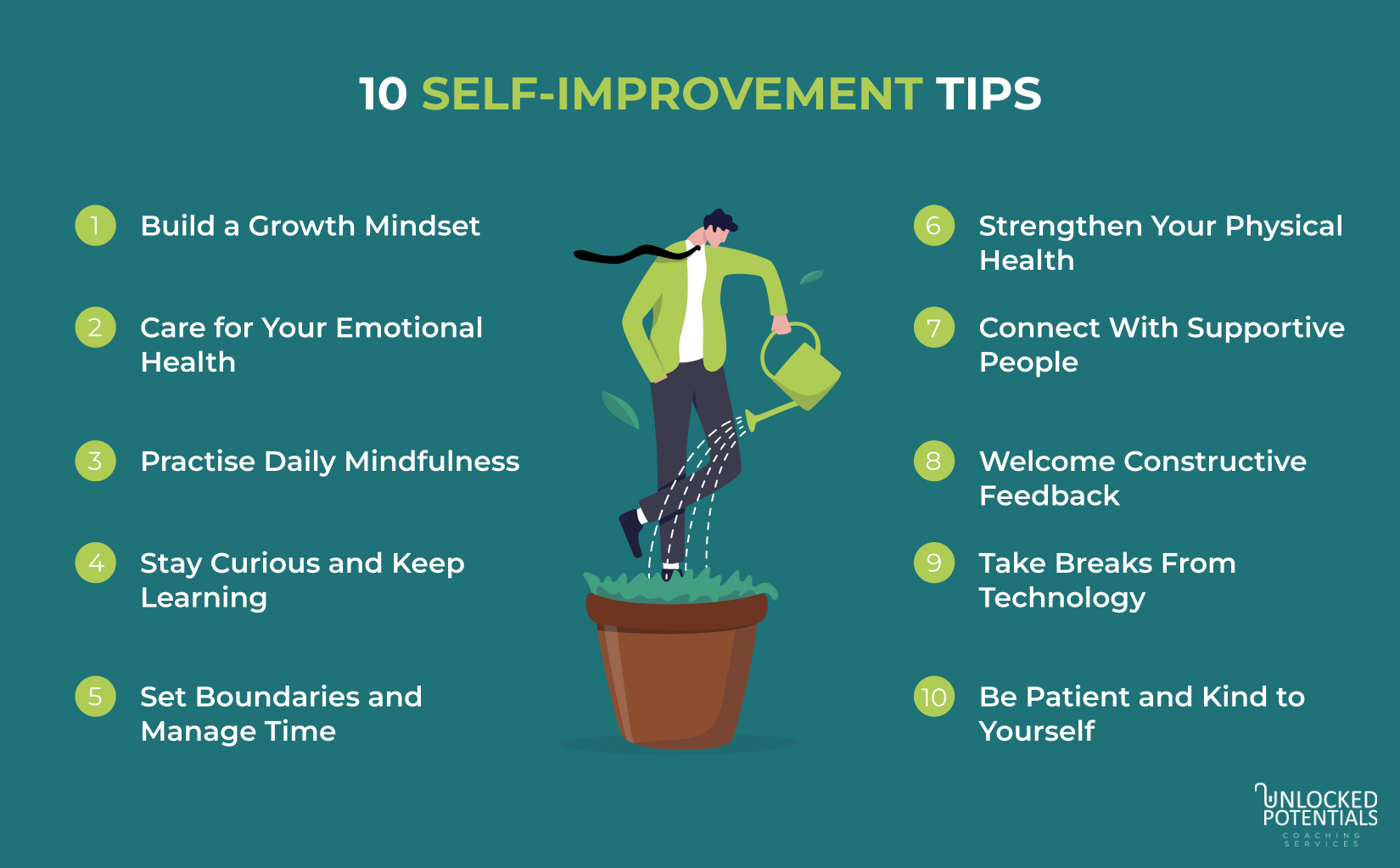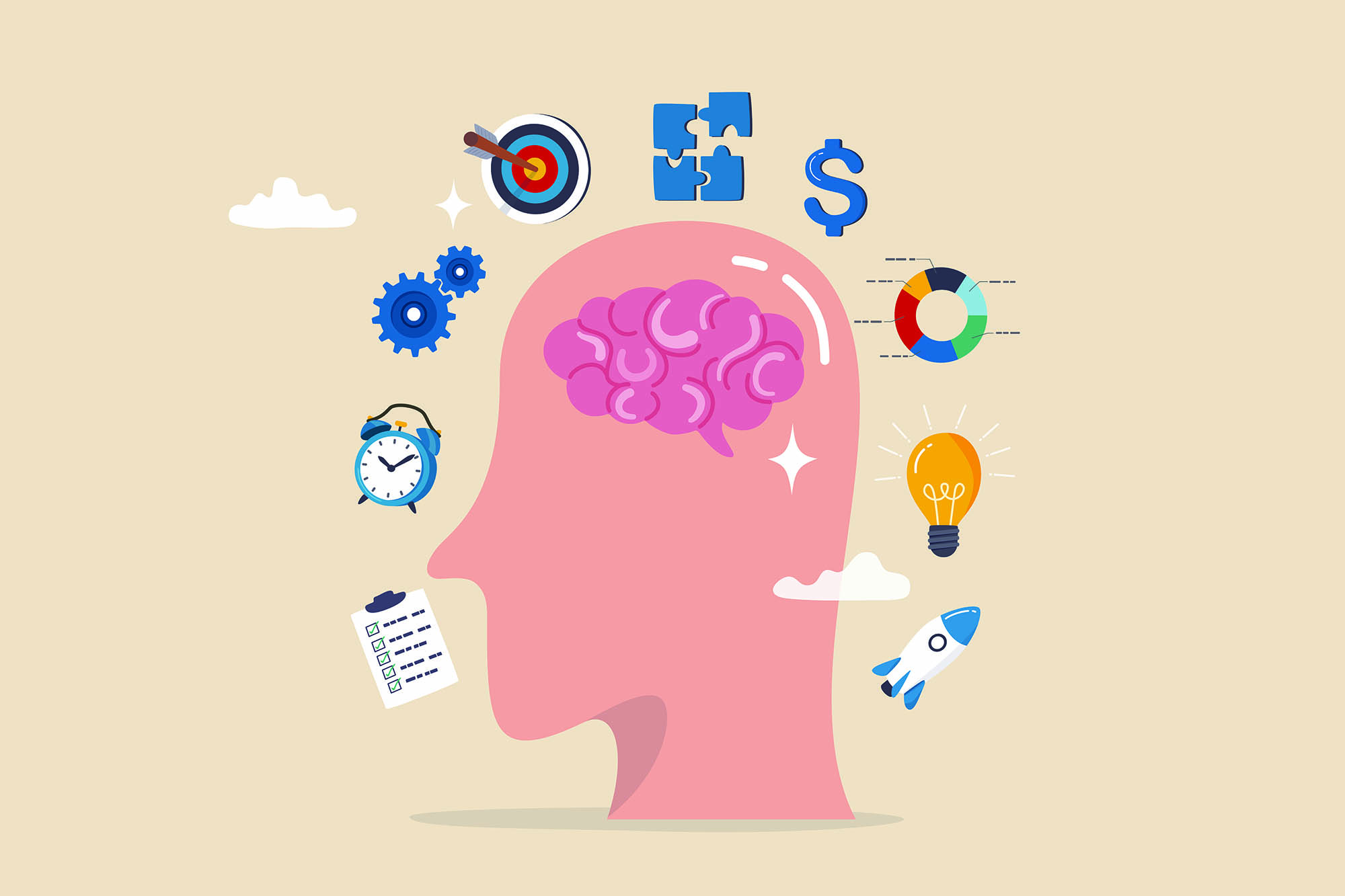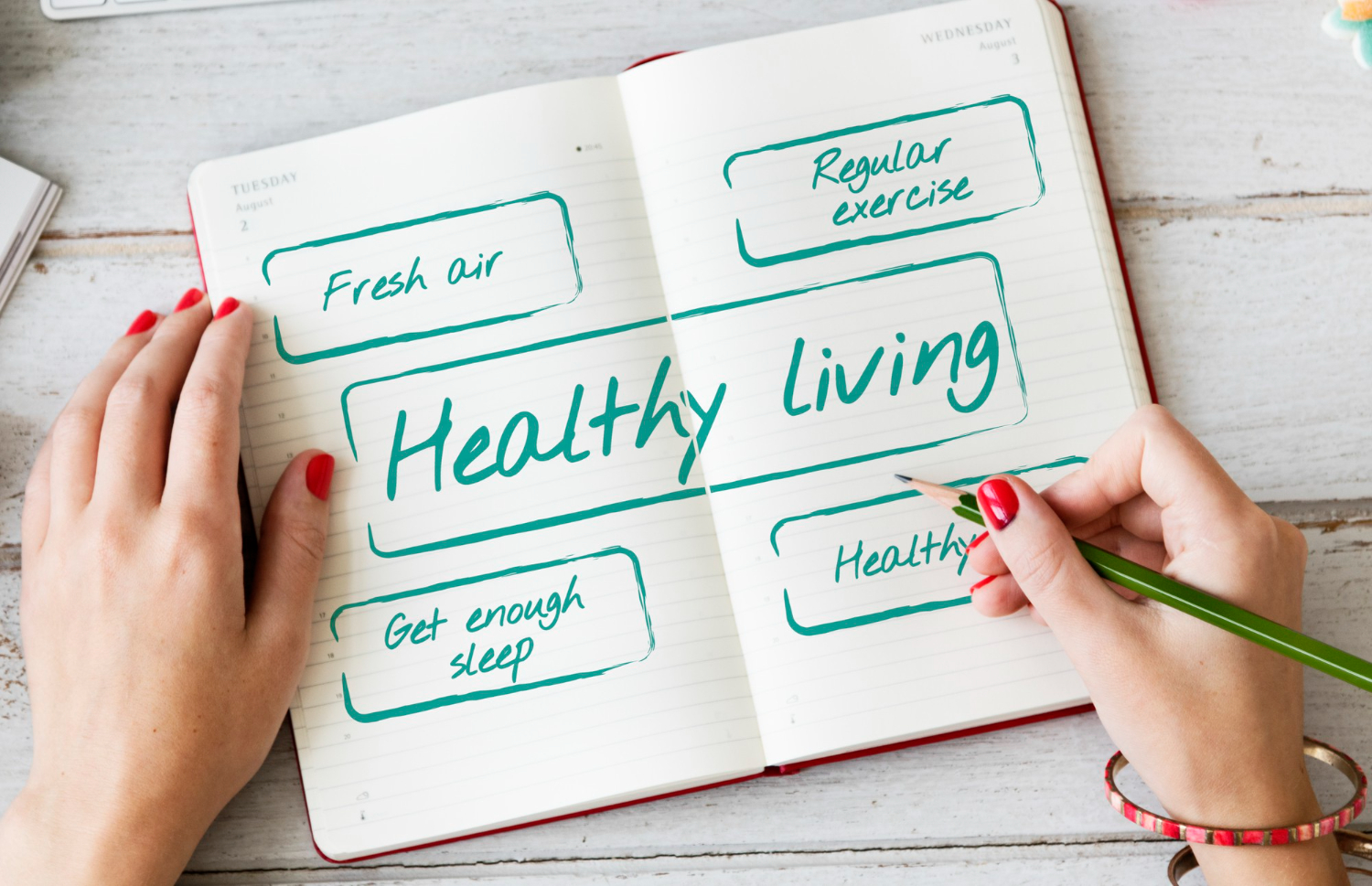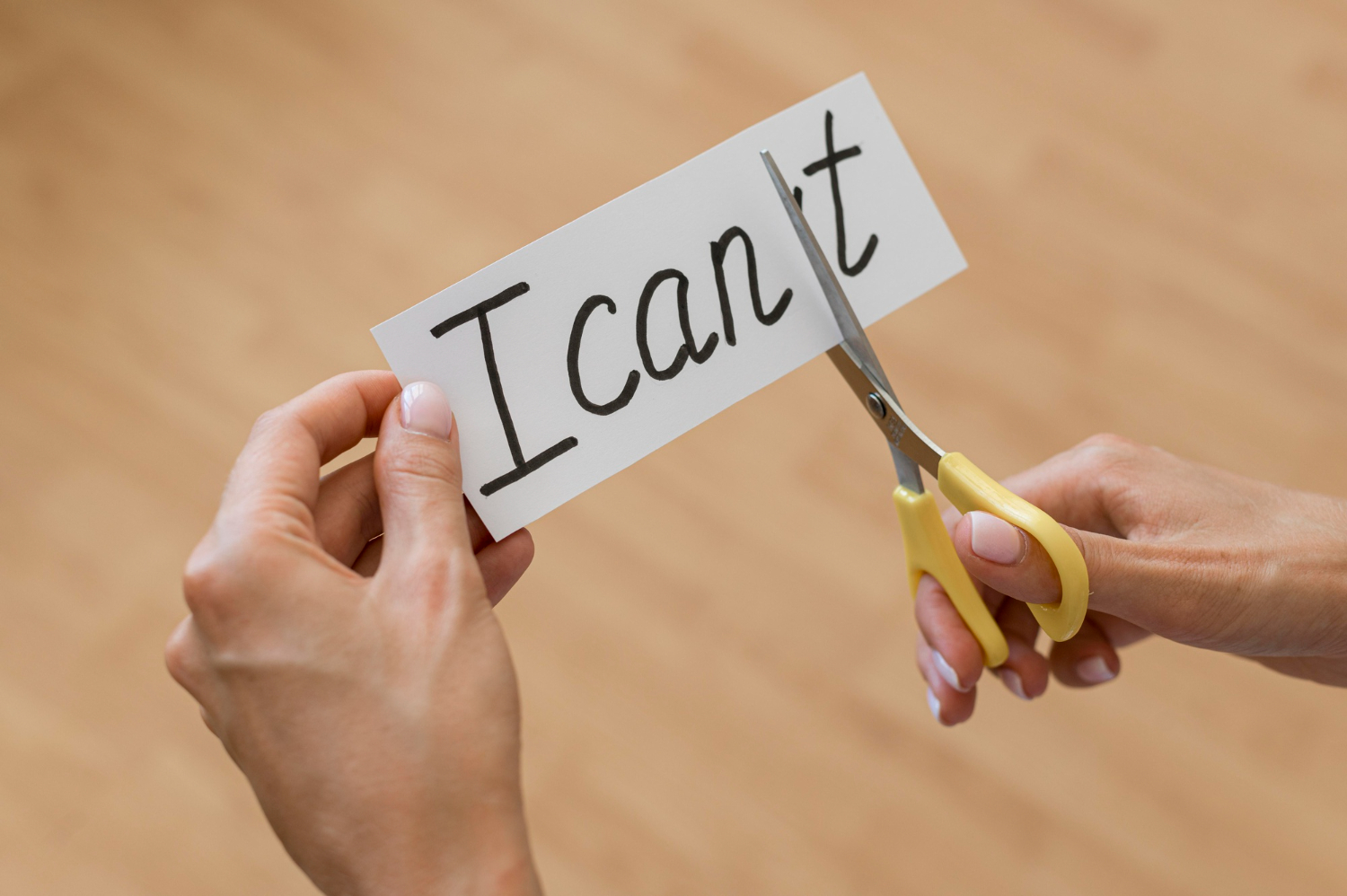Self-Development: 10 Self-Improvement Tips for Personal Growth

There comes a moment when the noise of everyday life quiets down—just enough for you to hear that inner voice saying, “I want more than this.” Not more in a material sense, but more clarity, more confidence, more control over your own path. I know that feeling well. It often shows up during life’s turning points—stepping into a new role, rebuilding after a setback, or simply realising that staying the same is no longer an option.
Self-development is a conscious decision to back yourself—to grow, to heal, to stretch beyond comfort. For some, this journey is supported by self-development coaching, offering the guidance and structure needed to stay focused and motivated.
The Foundation of Effective Self-Improvement
Gratitude is the simple act of recognising and appreciating the good in your life. It’s about focusing on what you have, rather than what you lack. Practising gratitude helps shift your mindset from stress and frustration to calm and contentment.
I’ve seen how powerful this small habit can be—not just in my own life, but in the lives of so many I’ve worked with. When life feels overwhelming, it’s easy to get caught up in everything that’s going wrong or everything you think you should have by now. But gratitude gently pulls you back. It reminds you that, even on tough days, there’s always something, no matter how small, that deserves a moment of thanks.
10 Self-Improvement Tips to Accelerate Your Personal Growth
Personal growth doesn’t happen overnight, but small, consistent steps can lead to real change. These tips are simple, practical, and designed to help you feel more in control of your journey. Start with one or two, and build from there—there’s no rush, only progress.
1. Cultivate a Growth Mindset
A growth mindset means believing that you can improve through effort and learning. It helps you see challenges as chances to grow, not reasons to give up. This mindset is key to building confidence and staying motivated.
I know how easy it is to think, “I’m just not good at this,” when something feels hard. But that’s not the truth—it’s just a habit of thinking. When you start telling yourself, “I can get better at this if I keep trying,” everything shifts. Mistakes stop feeling like failures and start feeling like lessons.
2. Prioritise Emotional Well-Being
Emotional well-being is about understanding and caring for your feelings. It helps you manage stress, build resilience, and stay balanced during life’s ups and downs. When you look after your emotional health, everything else becomes easier to handle.
Modern life can pull you in so many directions that you forget to check in with yourself. I’ve seen people push through stress, ignoring how they feel until they’re completely drained—I’ve done it myself. Emotional well-being starts with simple habits, such as taking a pause when things feel overwhelming, talking to someone you trust, or setting boundaries when you need space.
3. Practice Mindfulness
Mindfulness is the practice of being present in the moment. It helps you stay calm, focused, and aware of your emotions. Being mindful can reduce stress and help you enjoy life more.
I know how quickly the mind can race ahead, thinking about tomorrow’s worries or replaying yesterday’s mistakes. Mindfulness gently brings you back to now, where you have the most control. It doesn’t mean sitting in silence for hours.
4. Stay Curious and Open-Minded
Curiosity encourages you to keep learning and growing. An open mind helps you see new possibilities and adapt to change.
It’s easy to fall into routines and believe you already know how things are—or how they’ll always be. I’ve learned that staying curious turns even the hardest situations into opportunities to discover something new about yourself or the world. Ask questions, explore different perspectives, and don’t be afraid to try something outside your comfort zone. You don’t need to have all the answers—growth comes from being willing to learn.
5. Set Healthy Boundaries and Manage Your Time
I’ve seen many people, including myself, say “yes” to everything, only to end up feeling exhausted and frustrated. It’s not selfish to set limits; it’s self-care. Knowing when to pause, saying “no,” and stepping back allows you to show up fully for the things that align with your goals and values.
Start by noticing where your time and energy are being drained. Then, take small steps to reclaim them. Remember, growth happens when you give yourself room to breathe, not when you’re stretched too thin.
6. Nurture Physical Health as a Foundation
You can’t think clearly or feel motivated if your body is running on empty. You don’t need to follow strict diets or intense workout plans—just start by listening to what your body needs. A short walk, drinking more water, or getting to bed earlier can make a bigger difference than you think.
When you treat your body with kindness, it gives you the energy and balance to grow in every other part of your life. Think of your physical health as the foundation—strong roots that help you stay steady as you reach for more.
7. Surround Yourself With Supportive People
Being around those who uplift you can help you face challenges with confidence. Once you start spending more time with those who inspire you and less time with those who drain you, everything will change.
You don’t need a large circle; even one or two encouraging voices can make a huge difference. Personal growth isn’t something you have to do alone. A strong support system can help you go further, with less self-doubt along the way.
8. Embrace Constructive Feedback
Constructive feedback helps you identify areas for improvement. When you stay open to feedback, you give yourself a better chance to reach your full potential.
I know hearing feedback can sometimes feel uncomfortable—it’s natural to want to protect yourself. But the most growth often comes after someone kindly points out something you couldn’t see on your own. The key is to listen with an open heart and remember that feedback can be a tool for progress. Focus on what you can learn from it, not how it makes you feel in the moment.
9. Disconnect to Reconnect
Disconnecting from technology helps you reconnect with yourself and the world around you. Taking regular breaks from screens gives your mind a chance to rest and reset.
It’s not about cutting out technology completely—it’s about creating small moments of space where you can breathe, reflect, and simply be. Try setting boundaries, like no phones during meals or turning off notifications for a few hours each day. Notice how your mind feels less crowded and your energy returns.
10. Practice Self-Compassion and Patience
It’s easy to cheer for others and be understanding when they struggle, but being gentle with ourselves often feels much harder. Yet, lasting growth doesn’t come from self-criticism. It comes from encouragement, forgiveness, and trust in your own timing.
Some days will be messy. Some goals will take longer than you hoped. That’s okay. Progress is still progress, even if it’s slow. Treat yourself the way you would treat a dear friend—with kindness, patience, and belief in their future. You deserve nothing less.
How to Create a Personal Growth Plan
Having even a basic plan can make all the difference between feeling lost and feeling purposeful. It’s like giving yourself a map when you’re walking through new territory. You don’t need to have all the answers today—you just need a starting point and a willingness to take one small step at a time.
Here’s how you can create a personal growth plan that truly supports you:
Step 1: Reflect on Where You Are Now
Take a moment to reflect on your life right now. What areas feel good? What areas feel stuck or stressful? Being honest with yourself is the first act of self-kindness in this journey.
Step 2: Choose a Few Key Areas to Focus On
Pick one to three areas you would like to grow in, such as confidence, health, career, or emotional balance. Trying to fix everything at once often leads to burnout.
Step 3: Set Clear, Achievable Goals
Write down small, specific goals for each area you chose. For example, instead of saying “get healthier,” you could say “walk for 20 minutes three times a week.”
Step 4: Create Simple Action Steps
Break each goal into easy actions you can take daily or weekly. Tiny steps are powerful because they build habits over time.
Step 5: Track Your Progress with Kindness
Keep a simple journal or checklist to notice your efforts. Celebrate your progress, even the small things. If you miss a day or stumble, that’s normal—growth isn’t about being perfect, it’s about staying in the game.
Step 6: Review and Adjust as You Go
Life changes, and so will you. Every month or so, take a little time to review your plan. Ask yourself: What’s working? What feels hard? Adjust your steps as needed. Flexibility keeps you moving forward with grace, rather than guilt.
Tips to Overcome Self-Development Challenges
Challenges are a natural part of self-development. They don’t mean you’re failing—they mean you’re growing. With the right mindset and simple tools, you can move through them with strength and self-compassion.
Here are some supportive tips to help you overcome common self-development challenges:
- Focus on small, daily actions that build up over time.
- Speak to yourself with the same kindness you would offer a close friend.
- Instead of focusing on what’s left to do, take time to notice how far you’ve already come.
- When motivation fades, remind yourself why you started.
- Talking to a trusted friend, life coach, or community can give you new ideas, encouragement, and strength.
- It’s okay to review and adjust your path without guilt.
- Trust your process, stay patient with yourself, and know that every effort you make is planting seeds for your future.
Frequently Asked Questions About Personal Growth
1. What are good daily habits to support personal development?
Simple habits like setting small daily goals, reflecting on your day, staying active, and practising gratitude can help your personal growth. Even 10 minutes a day, focused on learning or mindfulness, can lead to real change over time.
2. How can I stay consistent with my self-development efforts?
Start with small, clear goals and create a routine that fits your lifestyle. Tracking your progress, even in a simple notebook, can help you stay focused and motivated without feeling overwhelmed.
3. Does working on myself help my career and relationships?
Yes, personal growth often leads to better communication skills, stronger confidence, and improved decision-making. These qualities can help you build healthier relationships and perform better at work.
4. What is the best way to measure my personal development?
Track your growth by noticing changes in how you think, react, and handle challenges. Small improvements in your habits, mindset, and emotional control are clear signs of real progress.
5. How can I recognise personal growth in myself?
You know you’re growing when you handle situations more calmly, make choices that align with your values, and recover more quickly from setbacks. Growth is not about big moments—it shows up in the small changes you make every day.
- September 2025
- August 2025
- July 2025
- June 2025
- May 2025
- April 2025
- March 2025
- February 2025
- January 2025
- December 2024
- November 2024
- October 2024
- September 2024
- August 2024
- July 2024
- June 2024
- May 2024
- December 2023
- November 2023
- August 2023
- July 2023
- June 2023
- May 2023
- April 2023
- March 2023
- February 2023
- January 2023
- December 2022
- November 2022
- October 2022
- September 2022
- August 2022
- July 2022
- June 2022
- May 2022
- April 2022
- March 2022
- February 2022
- January 2022
- December 2021
- November 2021
- October 2021
- September 2021
- August 2021
- July 2021
- June 2021
- May 2021
- April 2021
- March 2020
- February 2020
- January 2020
- December 2019
- November 2019
- October 2019
- September 2019
- August 2019
- July 2019
- June 2019
- May 2019
- April 2019
- March 2019
- February 2019
- January 2019
- December 2018
- November 2018
- October 2018
- September 2018
- August 2018
- July 2015
- May 2014










